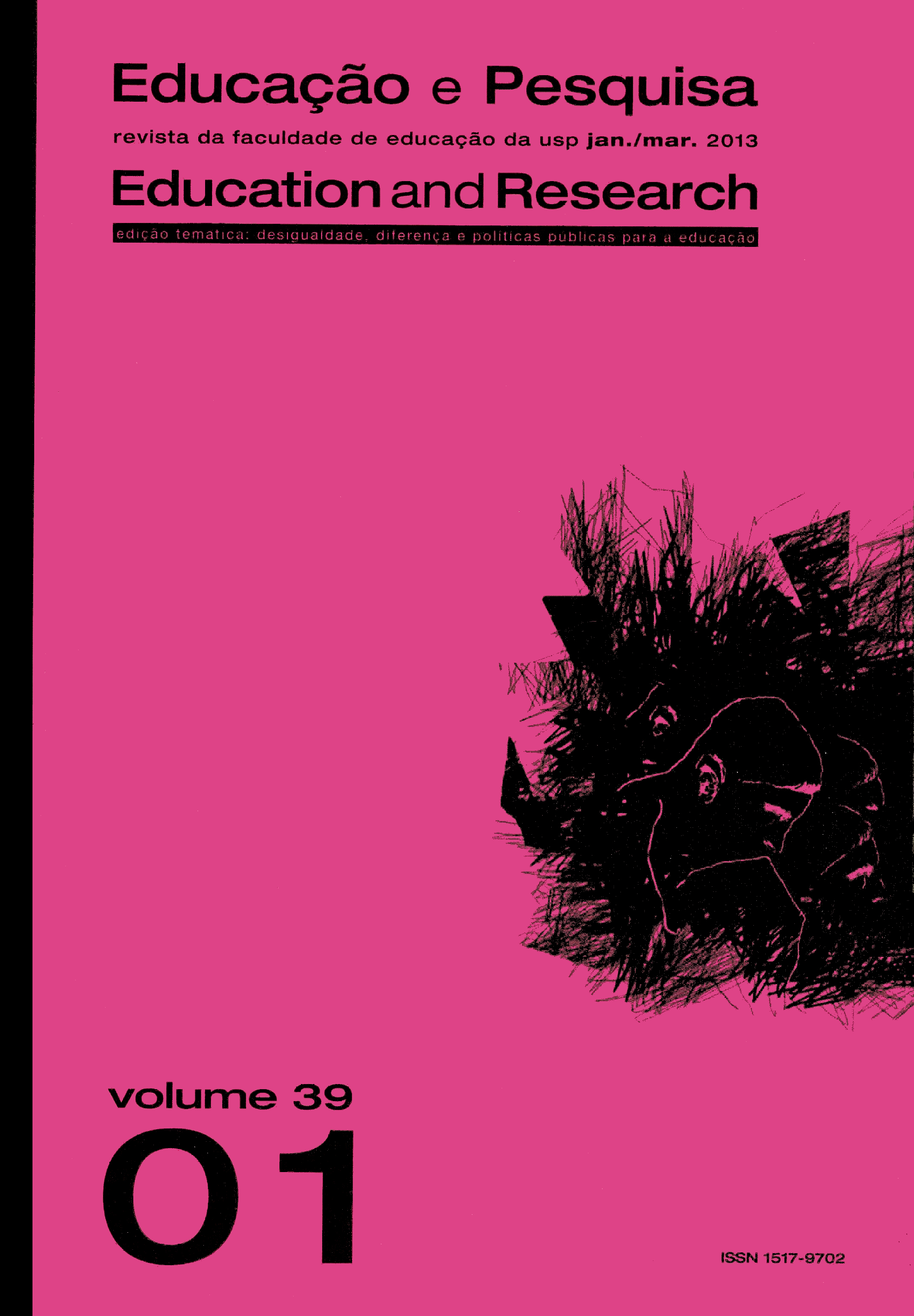Follow me, the good ones: trouble and sorrow in confronting heteronormativity in the school environment
DOI:
https://doi.org/10.1590/S1517-97022013000100010Keywords:
School, Heteronormativity, Gender diversity, Sexual diversity, Public policiesAbstract
This paper addresses the challenges one faces when attempting to change the basis of inequality in school associated with attributes of gender and sexuality. Ethnographic procedures are utilized to describe school scenes in three public schools in the city Porto Alegre, which are the stage where actions self-rated as intended to "fight homophobia", "respect towards diversity" and "inclusion of all". The aim is not evaluate public policies, since there is little span of field work, instead the reflection on what has been observed and reported is important as an input for monitoring and assessing actions, as well as to stimulate theoretical thinking about the conceptual categories on which such actions are based. The text is structured in three units. The first one deals with the complex conceptual and political discussion that currently involves categories such as difference, diversity, inclusion, equality and inequality, in articulation with the specific field categories: genders, sexuality and masculinities in the school environment. The second unit brings the ethnographic method for school scenes, assigning the context of the schools and groups of students. The third unit narrates some scenes and articulates their contents with theoretical issues and guidelines of the public policies currently in force for the subject. The main hypothesis developed herein is that school actions seem to praise diversity without touching the status of heteronormativity, which adversely affects its outreach.Downloads
Download data is not yet available.
Downloads
Published
2013-03-01
Issue
Section
Articles
License
Authors assume exclusive responsibility for the concepts expressed in their articles, which do not necessarily reflect the journal’s opinion.
Permission to photocopy all or part of the material published in the journal is granted provided that the original source of publication be assigned.
How to Cite
Follow me, the good ones: trouble and sorrow in confronting heteronormativity in the school environment . (2013). Educação E Pesquisa, 39(1), 145-159. https://doi.org/10.1590/S1517-97022013000100010



